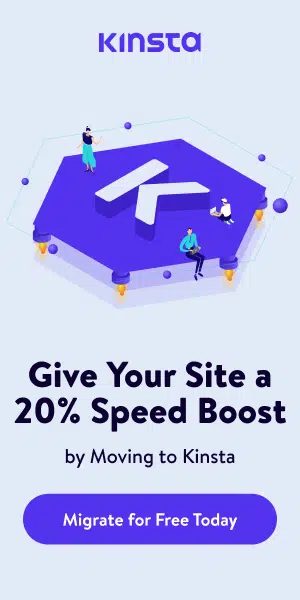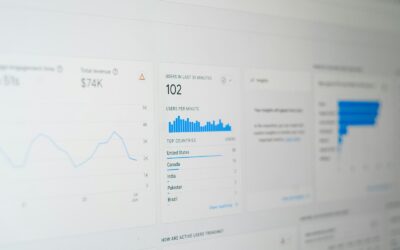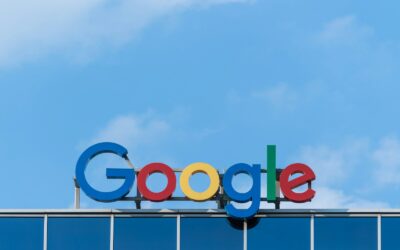Google ads are a major part of most businesses' digital marketing and advertising campaign strategy. 80% of businesses trust Google Ads for their PPC campaigns as the Google Ads platform gives them maximum visibility and reach.
However, with the growing trend of digital marketing and advertising and the rising demand for Google Ads, the cost of Google Ads increases yearly. Businesses must minimize their google ads costs and maintain their google ads budget. This blog post discusses the cost of Google Ads in 2023 and highlights the factors influencing it.
Google Ads
Google Ads, formerly Google Adwords, is a powerful and cost-effective advertising tool that helps businesses reach their target audiences more efficiently. Google Ads can promote products and services, generate leads and increase sales by putting a business in front of the right people at the right time.
Google Ads works on an auction-based system. Advertisers bid for ad space in the Google ads auction process, and the highest bidder wins. Advertisers compete against each other with their bids and Quality Scores, which Google uses to determine who will get the top spot on SERPs (Search Engine Result Pages).
Looking for an experienced Wordpress Development company?
The cost of advertising depends on how high an advertiser is willing to bid per keyword and other factors like quality score, competition level, and target audience demographics.
How Much Does Google Ads Cost In 2023
Google ads pricing varies depending on several factors. The average google ads cost for a Google Ads campaign in 2023 is estimated to range between $1-$2 per click, depending on the industry and other factors mentioned above.
Advertisers need to track their ad prices regularly to ensure that they are getting the most out of their campaigns and keeping costs low even in a highly competitive market.
Various factors influence Google Ads pricing, including quality score, bid prices, ad rank, cost per click, target audience, and competition level.
Quality Score
Quality Score measures the relevance and quality of an advertiser's ads, keywords, and landing pages. It determines where an ad will rank on SERPs (Search Engine Result Pages). It is important to improve it to stay competitive and reach the right audience.
Google Ads uses an algorithm to determine the Quality Score by evaluating ads for relevance and helpfulness for users based on their relevance to their search query, their usefulness in providing helpful information, and how engaging it is.
The highest Quality Score is usually given to the top three ads on SERPs, which are determined by their relevancy, helpfulness, and engagement. The higher an ad's Quality Score, the more likely it is to appear in the top positions on SERPs.
Advertisers can find out who has the highest quality score using the Google Ads tool Auction Insights, which gives detailed information about all competing ads and their Quality Scores.
Ads with higher Quality Scores attract a lower cost per click (CPC) and better ad positions. Advertisers can improve their Quality Score by optimizing their ads with targeted keywords, using compelling ad copy, increasing landing page relevancy, improving user experience on the landing page, using extensions like Sitelinks and Callouts, etc.
Google Ads also provides tips on improving Quality Score, which can be seen under the “Opportunities” tab. High-Quality Scores are essential for advertisers if they want to remain competitive in SERPs and reduce their CPCs significantly.
Advertisers should regularly check their Quality Scores and take necessary actions accordingly, as having a low score could result in high costs and poor performance of campaigns.
Bid Prices
Bid Prices are an important factor when it comes to Google Ads pricing. It is the amount that advertisers are willing to pay for each click that their ad receives on SERPs (Search Engine Result Pages).
The cost per click (CPC) depends on how much an advertiser is willing to bid for a keyword, its competition level, and other factors like Quality Score and target audience demographics.
The higher the bid price, the more likely it is for an advertiser's ad to rank higher on SERPs, resulting in increased visibility and traffic. Similarly, a lower bid price could result in decreased visibility and traffic for an advertiser's ad.
In addition, Google Ads also allows you to use automatic bidding strategies like Cost Per Acquisition (CPA), which automatically sets bids based on your goal of acquiring customers at the lowest cost possible.
This can be beneficial if you want to maximize the number of conversions from your campaigns without manually adjusting bids every time. Furthermore, it could also help reduce costs over time by finding the most efficient bid price needed to reach your objectives.
Besides manual or automated bidding strategies, advertisers can also set budgets according to their needs and preferences, determining how much they will spend on their campaign each month or day. This would help them manage their spending better and more efficiently as they can control how much they spend depending on their budget caps.
Overall, understanding how bid prices work and setting up suitable bidding strategies according to one's needs is essential if you want success with your campaigns while keeping costs low even in a highly competitive market.
Advertisers need to keep track of their bids regularly so that they can make necessary adjustments whenever needed. Keeping up-to-date with trends, testing different approaches, and allocating a sufficient budget are some key steps that should be taken to get good results from Ads placement.
Ad Rank
Ad Rank is another important factor that affects Google Ads pricing. It is an algorithm that determines the position of an advertiser's ad on the SERPs based on their bid price and Quality Score.
The higher the Ad Rank, the better the position of an advertiser's ad on SERPs and vice versa. Advertisers must keep track of their Ad Ranks to stay competitive in a highly competitive market and reach more potential customers.
In addition, using appropriate keywords or running keyword research can also be beneficial for improving visibility and increasing engagement.
Target Audience
Generally, more competitive markets with more businesses advertising their products or services will have higher ad prices. Additionally, advertisers targeting a more specific demographic such as an age group, gender, or location, will typically pay higher CPCs due to having a smaller targeted audience than other businesses.
Furthermore, certain industries like technology and e-commerce tend to experience higher ad prices due to the highly competitive nature of these markets. Finally, campaigns targeting users based on their search history can incur higher costs since they are likely to be more relevant for those users and compete for better placement on SERPs.
Moreover, advertisers can also use different targeting options like retargeting, which allows them to show ads only to those who have previously interacted with their website or ads.
By using appropriate targeting strategies with campaigns, advertisers can ensure that they are reaching out only to the right people and simultaneously reduce their CPC costs significantly. Geo-targeting can also be beneficial for reaching customers in specific locations, which helps businesses localize their campaigns and get better investment returns.
Competition Level
The competition level in the market affects Google Ads pricing as well. If there is high competition for a certain keyword or phrase, then the bid price will be higher than if there is less competition.
The keyword with the highest competition on Google Ads will depend on the industry and market. Generally, keywords related to technology, e-commerce, finance, health, and travel are more competitive than other industries.
Additionally, keywords with long-tail phrases that relate to specific topics or products may also have higher competition than single words or short phrases. Advertisers should research their target markets thoroughly to determine which keywords are most competitive and allocate budget accordingly.
Furthermore, researching competitors' campaigns can help identify new opportunities or strategies that could benefit any campaign. By continuously monitoring competitor activities, advertisers can identify new strategies and trends that they can use to gain an advantage over their rivals.
How To Minimize Your Ad Spend
There are several ways to minimize your monthly google ads spend to help you maximize the value of your google ads. They include the following:
Evaluate Google Ads Performance Regularly
By assessing the performance of your campaigns regularly using the google ads dashboard, you can identify any underperforming keywords or campaigns and allocate your google ads budget more efficiently.
Additionally, monitoring competitor activity and trends in the industry can help you stay ahead of the competition and adjust your strategy accordingly.
Bid On Closely Related But Lower-Cost Keywords
Instead of bidding on highly competitive or expensive keywords, advertisers should consider bidding on related, lower-cost keywords as they can help maintain visibility and reach potential customers with less effort.
Additionally, these closely related terms may be more effective at driving conversions as they are more likely to match user intent better than generic terms.
Optimize Bids And Budgets According To Device Type
Advertisers can optimize their bids and budgets by separating campaigns based on device type. For instance, if you are targeting mobile users, it is best to allocate a higher budget and bid price as they tend to have a higher conversion rate than desktop or tablet users.
Use Automation Features
Google Ads provide automated features such as Smart Bidding that enable advertisers to set up campaigns and optimize their performance more efficiently and easily.
These features use machine learning algorithms that can detect changes in user behavior and adjust bids accordingly. Additionally, these automated features help reduce the manual effort required for optimizing ad campaigns.
Leverage Extensions & Other Features on Your Google Ads Account
Ad extensions provide users with additional information about your product or service, which can be beneficial for increasing click-through rates and conversions.
Use The Google Search Network Instead of Google Display Network
The Google search network can help you target customers more precisely while reducing ad spending. This is because searches on the Google search network are typically more focused and direct than those on the Google display network, which may result in higher click-through rates and lower advertising costs.
By using the above strategies, businesses can ensure that they get maximum visibility from their Google Ads campaigns while at the same time reducing their ad spending significantly.
Furthermore, it is important to keep testing new strategies, keywords, and targeting options to ensure that ad campaigns remain optimized over time.
Keeping up with the latest industry trends is also essential to maintain a competitive advantage in the market. With these tips, businesses can save money while increasing their visibility on Google Ads.
Conclusion
Google Ads pricing depends on bid prices, Ad Rank, targeted audience, and competition level. As an advertiser, it is important to understand how these factors work to get the most out of your campaigns and achieve success with Google Ads.
To be successful with Google Ads campaigns, advertisers need to understand how to use Google ads services, keep track of their bids regularly, stay up-to-date with trends, and allocate a sufficient budget for their campaigns.
Additionally, they should also use appropriate targeting strategies to reach only the right customers while reducing CPC costs significantly. By following these tips, advertisers can ensure that their campaigns have a good chance of success while keeping costs low even in highly competitive markets.
Priceless Consulting can assist you if you need help managing your Google Ads campaigns and optimizing them for success. Our expert team has extensive experience managing Google Ads campaigns and has helped many businesses achieve their goals.
Contact us today to learn more about how we can help you get the most out of your ads! We look forward to hearing from you and helping you unlock the potential of Google Ads.











